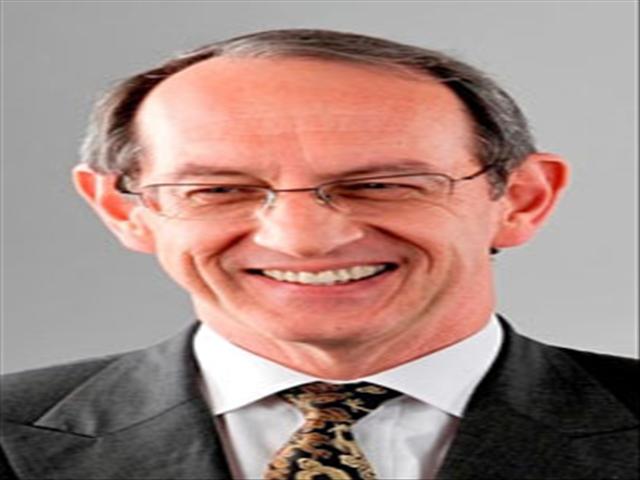Latest News Archive
Please select Category, Year, and then Month to display items
05 June 2018
Photo Supplied
 Archaeological excavations in the Wonderwerk Cave, north of Kuruman in the Northern Cape.
Archaeological excavations in the Wonderwerk Cave, north of Kuruman in the Northern Cape.
Research fellow Dr Lloyd Rossouw from the Department of Plant Sciences at the University of the Free State (UFS) recently published an article in the Nature Ecology and Evolution journal with Dr Michaela Ecker from the University of Toronto as lead author, and Dr James Brink, research fellow at the UFS Centre for Environmental Management. The findings described in “The palaeoecological context of the Oldowan-Acheulean in southern Africa” provides the first extensive paleoenvironmental sequence for the interior of southern Africa by applying a combination of methods for environmental reconstruction at Wonderwerk Cave, which have yielded multiple evidence of early human occupation dating back almost two million years ago.
Where water once was
The Wonderwerk Cave is found north of the Kuruman hills (situated in Northern Cape) a 140m long tube with a low ceiling. The surroundings are harsh. Semi-arid conditions allow for the survival of only hardy bushes, trees, and grasses. But during the Early Pleistocene, stepping out of the Wonderwerk Cave you would have been greeted by a completely different site, the researchers found. Using carbon and oxygen stable isotope analysis on the teeth of herbivores (Dr Ecker), fossil faunal abundance (Dr Brink), as well as the analysis of microscopic plant silica remains (phytoliths) excavated from fossil soils inside the cave (Dr Rossouw), the results show that ancient environments in the central interior of southern Africa were significantly wetter and housed a plant community unlike any other in the modern African savanna.
What difference does it make?
While East African research shows increasing aridity and the spread of summer-rainfall grasslands more than a million years ago, the results from this study indicate an interesting twist. During the same period, shifts in rainfall seasonality allowed for alternating summer and winter-rainfall grass occurrences coupled with prolonged wetlands, that remained major components of Early Pleistocene (more or less the period between one and two million years ago) environments in the central interior of southern Africa. That means our human ancestors were also living and evolving in environments other than the generally accepted open, arid grassland model.
UFS appoints Dr Derek Swemmer as Registrar
2010-09-30
 |
| Dr Derek Swemmer |
|
The University of the Free State (UFS) has appointed Dr Derek Swemmer, current Registrar of the University of the Witwatersrand (WITS), as its Registrar.
Dr Swemmer, who is currently recognised as one of the most experienced, competent and outstanding registrars in South Africa, will join the UFS as from 1 October 2010. He was Registrar at WITS since 1995.
“I am enthusiastic at the thought of working at the UFS under its new leadership and in a time of change. This appointment creates the opportunity for me to assess the many existing practices of the UFS and to seek to enhance these based on my own experience at WITS,” he said.
Dr Swemmer started his academic career as a part-time student assistant at the University of Pretoria (UP) in 1974. He also taught at the Christ’s Hospital Public School in the United Kingdom and was a full-time lecturer in the Department of English at the University of South Africa (UNISA) until he joined WITS as Personal Assistant to the Vice-Chancellor and Principal in 1985.
Dr Swemmer holds a D Litt et Phil in English from the University of South Africa. He received numerous awards including the South African Golden Key International Honours Society Chapter Adviser of the Year in 2006 and 2008, an extraordinary second Certificate of Honour by the International Education Association of South Africa and the Golden Key International Leadership Council President’s Award.
Dr Swemmer chaired, amongst others, the WITS Issues Management Group and the WITS Crisis Committee; and was an Honorary Treasurer of the International Education Association of South Africa and an Honorary Secretary of the English Academy of Southern Africa.
He authored, co-authored and co-edited a number of text books, journals and magazines. He also delivered a number of papers at national and international conferences.
Dr Swemmer will be taking up the position as the single registrar of the UFS.
Media Release
Issued by: Lacea Loader
Director: Strategic Communication (actg)
Tel: 051 401 2584
Cell: 083 645 2454
E-mail: loaderl@ufs.ac.za
29 September 2010